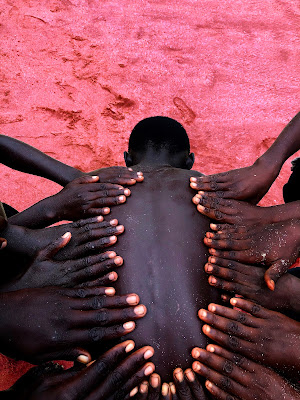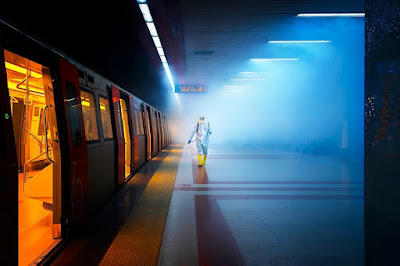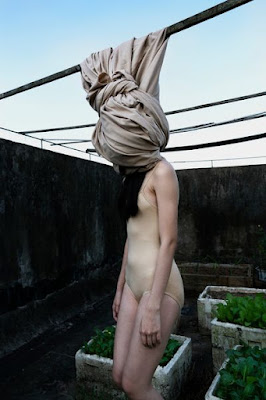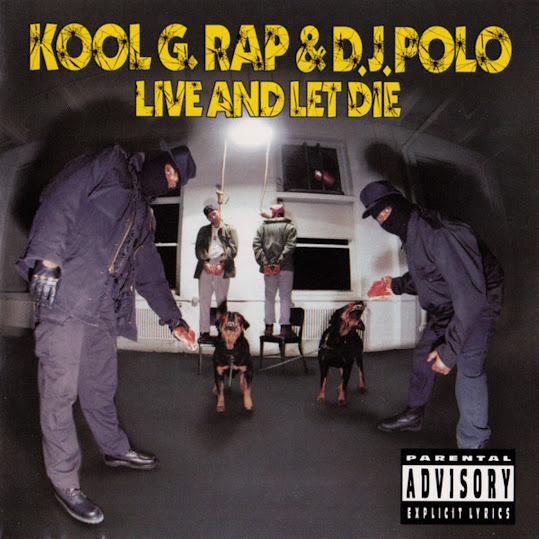Film, media and related arts - subjective contemplation and commentary with consideration of the intrinsic duality, interminable relevance and evolution of each. Exhibition of original and contributed film, art, music and writings.
Monday, January 31, 2022
The Optical Files #16: David Banner - Certified (2005)
2021 Between the Lines #06 - Images of Relevance
For the Art and the Image. Photography chosen for artistic attributes above all else.
Saturday, January 29, 2022
The Optical Files #15: Cypress Hill - Cypress Hill (1991)
DJ Muggs is in the midst of a career resurgence, at least as far as press is concerned, thanks to a string of well-received solo projects & collaborations in the last few years. For a while, though, it seemed like Muggs was a hiphopper's best-kept secret--one of the most important sonic innovators in the genre but generally flying under the radar compared to the superstar producers he inspired. For an example, look no further than the album that started it all (respect due to 7A3), Cypress Hill's 1991 self-titled effort.
(Coincidentally, as I write this, yesterday Cypress Hill announced a new album to be fully produced by Black Milk, with no Muggs in sight.)
One listen to Cypress Hill confirms Muggs, who produced the whole album, as one of the unsung architects of the West Coast gangsta sound. The slower tempos on songs like "Pigs" & "Stoned is the Way of the Walk," loping basslines & druggy atmosphere are distinct from the sharper, more uptempo production of earlier L.A. gangsta acts like Ice-T. Still, Cypress Hill's particular blend of elements is wholly unique: skanky funk guitars, psychedelic leads, Latin rhythms, & samples like vocal chops, sound effects, isolated bits of noise that come & go in the mix like random synapses firing in the stoned brain. The overall effect is off-kilter, carnivalesque (see the brief hurdy-gurdy beat change in the middle of "How I Could Just Kill a Man"), colorful & vaguely comedic. The congregate impression is of the world turned slightly askew, leading to surprising flips like the "Duke of Earl" sample that propels "Hand on the Pump." Even the cover art is stretched out of shape, mimicking the distorted view through a haze of cheeba smoke.
This cartoonish quality extends to the lyrics & vocal performance. B-Real's nasal falsetto delivery is a love-it-or-hate-it element; personally I love it, & I'm always a little disappointed when Sen Dog starts rapping. No disrespect to Sen--he & his brother Mellow Man Ace are legends in Latin rap--but he's significantly less interesting than B-Real both lyrically & vocally. Most of the album showcases B-Real's nimble flow, as he seemingly invents slang on the fly, flips turns of phrase without calling attention to them, cracks sly asides & dares you to keep up. Cypress Hill never took themselves as seriously as other West Coast gangsta acts (though, for what it's worth, Sen & B are genuine gang members). Although there is plenty of violence in the lyrics, the whole thing is shot through with a sense of gregarious fun. I think this element is what made Cypress Hill such a successful crossover act with white suburban audiences. They delivered tough street tales with just enough winking at the camera to make the pill easier to swallow, & their music had a rock & roll bent that got more pronounced as the years went on.
"Pigs" is a great opener, setting the stage for what is to come, with a monumental beat & a sneering anti-police message that's almost makes me forgive this for being the 2nd album in this series where you hear a homophobic slur before a full minute has elapsed. On the other hand, Cypress Hill lacks the extreme misogyny that was a common feature of this era of gangsta rap. B & Sen crack a few jokes at the expense of objectified women, but there's nothing approaching the extreme woman-hating of an album like N.W.A.'s Efil4zaggin, which was made contemporaneously, released 3 months earlier, & had a similar sonic profile.
Ultimately, for me Cypress Hill fall into the Busta Rhymes category of iconic, influential hiphop figures who never managed to make a truly great album. I'm tempted to use the word "frontloaded," but the problem is more just a dearth of ideas. All the good ones were used in the album's first half, & the rest starts to feel a little samey. There are surely bright spots on the album's back half ("Stoned is the Way...", "Latin Lingo," "Tres Equis"), but overall it feels like all the crew's tricks have been exhausted by track 9.
One thing I've always loved about early West Coast gangsta rap is its diversity. Boo-Yaa T.R.I.B.E. represented American Samoa, Mellow Man Ace & Kid Frost brought Latin flavors, & there were even folks like Muggs, Everlast (pre-House of Pain he was part of Ice-T's Rhyme $yndicate) & Eazy-E's signee Tairrie B representing the mayonnaise delegation. The multi-platinum-selling Cypress Hill were the first crew to bring Latin rap to the mainstream, & they have proudly represented their Cuban & Mexican roots ever since. Despite any quibbles I have about the album, that (& the 2 million+ units it sold) are things I can never argue with.
Friday, January 28, 2022
Titane - Featured Film of Interest - Winner of the 2021 Cannes Film Festival Palme d'Or
Titane, directed by Julia Ducournau and winner of the 2021 Palme d'Or at Cannes, is my most anticipated film of 2021. Though it was released in October, I have yet to see it due to zero opportunity. I'm hoping for a local theater screening in the upcoming months (Violet Crown, please), but have yet to see notice of one. I do not think it is yet streaming, but if it is, I'm pretty certain that I will hold out for the big screen. I may have to travel a bit, Richmond/DC style. For those of my friends and colleagues in major markets and larger cities that have had the chance to see Titane, well, keep it quiet - you already know I'm jealous.
 |
| Director Julia Ducournau after her win |
Director Julie Ducournau is only the second woman to receive the Palme d'Or and the first female to win it alone.'
Links:
- BBC - Cannes Film Festival: Titane wins top Palme d'Or prize
- The Guardian - Julia Ducournau: "Women Kicked serious ass this year"
Thursday, January 27, 2022
The Optical Files #14: Kool G. Rap & D.J. Polo - Live and Let Die (1992)
Wednesday, January 26, 2022
2021 Between the Lines #05 - Images of Relevance
Photojournalism opening windows into the world.
 |
| Boy, Indonesia |
 |
| Moscow, Jan. 31 |
 |
| Bogota, Colombia, May 5 |
 |
| Avdiivka, Ukraine, Dec. 1 |
 |
| Petah Tikva, Israel, May 13 |
 |
| Los Angeles, CA, Jan. 18 |
 |
| Manhattan, NY, Nov. 2 |
 |
| Brooklyn, NY, Feb. 23 |
 |
| Echo Summit, CA, Aug. 30 |
 |
| Manhattan, NY, July 7 |
 |
| Washington DC, Oct. 27 |
 |
| The Bronx, NY, Nov.2 |
 |
| Ciudad Juarez, Mexico, March 18 |
 |
| Del Rio, Texas, Sept. 19 |
 |
| Washington DC, June 19 |
 |
| Dhiam Dhiam, South Sudan, Oct. 21 |
 |
| Yangon, Myanmar, March 14 |
 |
| Scotland, November |
Tuesday, January 25, 2022
The Optical Files #13: Waylon Jennings - Honky Tonk Heroes (1973)
Sunday, January 23, 2022
Outkast - 'Player's Ball' - Song for the Day
Cullen's recent Optical Files #12 post inspired me to revisit an album that was pinnacle to my youthful musical evolution. Southernplayalisticadillacmuzik isn't just one of the coolest album titles of all time. The debut album by the Outkast, as well as the follow up, ATLiens, were the most significant albums to me personally in opening the doors of hip hip. They remain my most listened to hip hop duo, and Andre 3000 perhaps my favorite MC. Enjoy the video and song for the day, from a very youthful Outkast (1994). It still blows my mind how young they were to release such an intensely innovative album.
The Optical Files #12: Outkast - Southernplayalisticadillacmuzik (1994)
Friday, January 21, 2022
The Optical Files #11: Bob Dylan - Modern Times (2006)
Thursday, January 20, 2022
Biab Pop Culture Character Quiz - A Dichotomy of Perspective
The Following is a Pop Culture Quiz designed by Boy in a box as an either/or dichotomy of the most ridiculous nature. I know most of you are familiar with this paradigm for fun back and forth banter. Some of the classic standards in music would be "Beatles or Stones", "Chuck Berry or Elvis", "Biggie or Tupac" and so on. It's basically a quiz of pointed preferences. You get the idea.
Some of the dichotomies on the list are pop culture standards or cliches that you are likely familiar with, and have possibly considered before. Others are stolen from friends and various places, and some are originals (likely also stolen).































